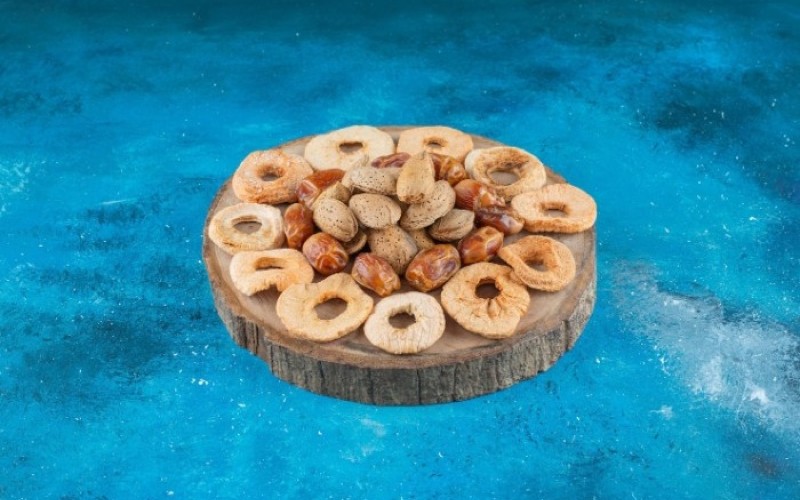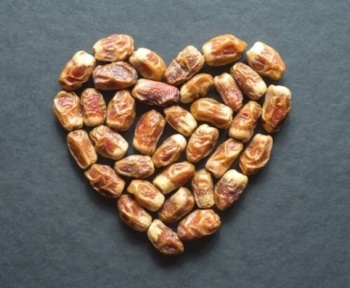Introduction
Dates and dried figs—they’re often lumped together because they both make delicious, sweet snacks. But here’s the thing: while they share a few similarities, they’re actually pretty different. Whether you’re popping them into a salad, throwing them in a smoothie, or just snacking, it’s good to know what sets them apart. In this post, we’re going to break it down—what makes dates and dried figs unique, how they’re processed, and how they can benefit your health. Please stick with me; by the end, you’ll know exactly which fruit to reach for.
What Are Dates and Dried Figs?
Let’s kick things off by getting familiar with each of these fruits.
Dates are the fruit of the date palm tree, and these trees thrive in dry, warm climates like those in the Middle East and North Africa. Dates are known for their natural sweetness, which is why they’re often used in desserts or eaten as a snack on their own. If you’ve ever had one, you know they have a dense, chewy texture and a rich, caramel-like flavor.
On the flip side, dried figs come from the fig tree, and they have a very different vibe. Figs have a slightly earthy taste with a burst of sweetness. Fresh figs are great, but once they’re dried, they become more concentrated in flavor. The skins are bumpy and wrinkled, and when you bite into them, you get a satisfying crunch from the tiny seeds inside. So, while dates are chewy and sticky, figs give you that unique crunchy texture. It’s definitely worth the comparison.
Now that you know what they are, let’s talk about how they’re processed.
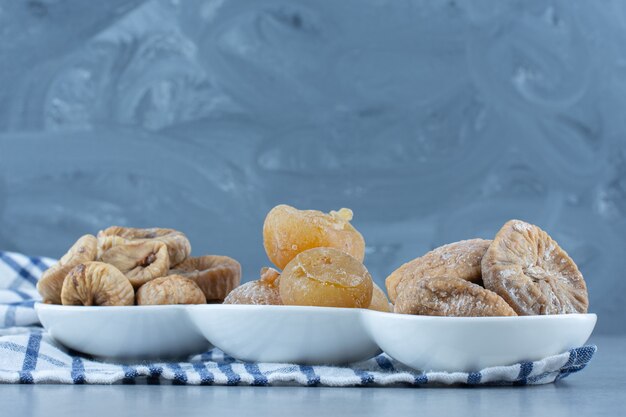
How Are Dates and Dried Figs Processed?
You might be wondering, “Are dates and dried figs processed the same way?” Well, not exactly. Let’s look at the drying process for each one.
How Dates Are Dried:
- Harvesting: Dates are picked once they’re ripe from the date palm tree.
- Cleaning: They’re cleaned to remove any dirt or dust.
- Drying: Dates are usually sun-dried or machine-dried, depending on where you’re getting them from. The process can take anywhere from a few hours to a couple of days.
- Packaging: Once dried, they’re sealed in containers to lock in freshness.
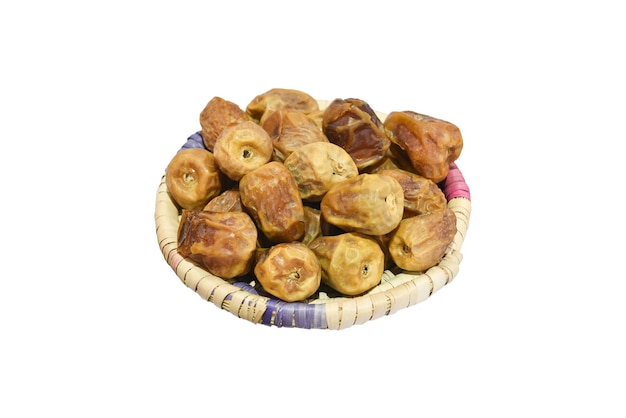
How Figs Are Dried:
- Harvesting: Figs are picked by hand from fig trees once they’re ripe.
- Cleaning: Like dates, they’re cleaned to make sure no dirt is left on them.
- Drying: Figs can be dried under the sun or using a dehydrator, and the process can take anywhere from 12 to 24 hours.
- Packaging: After drying, they’re packed away in airtight containers to maintain their flavor and texture.
The drying process for both fruits is pretty similar, but you’ll notice that dates end up being sticky and chewy. At the same time, figs become crunchy with that unique wrinkled skin. Let’s check out a quick comparison of the two:
Comparison Table:

Nutritional Differences: Dates vs. Dried Figs
Let’s talk about nutrition now—because we all want to know which fruit is the healthier choice, right?
Calories & Sugar
Dates are definitely more calorie-dense and sugary than figs. That means they’re perfect when you need a quick energy boost. They’re great for athletes or anyone who’s feeling a bit sluggish and needs a natural pick-me-up. On the flip side, figs are lower in sugar and calories, which might make them a better option for people watching their calorie intake.
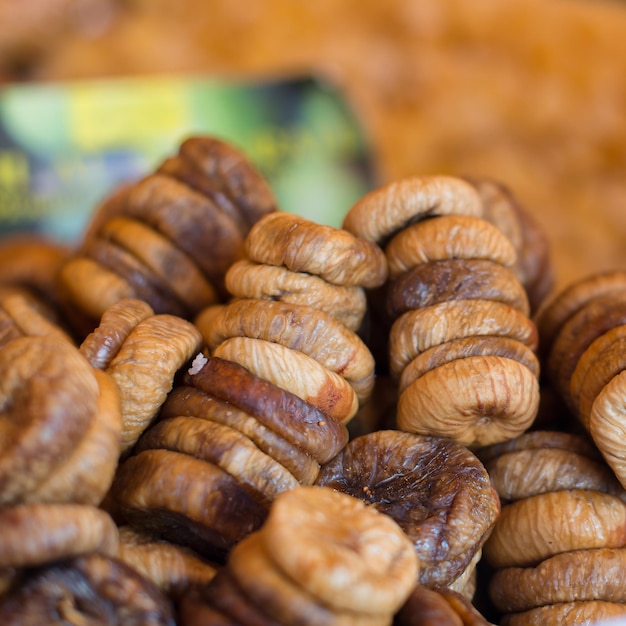
Vitamins & Minerals
When it comes to vitamins and minerals, dates are packed with potassium and magnesium, both of which are great for heart health and muscle function. Figs, on the other hand, are a standout source of calcium—great for your bones—and they also contain iron, which helps with blood health.
Fiber Content
Both dates and figs are high in fiber, but figs actually have a bit more. Fiber is essential for good digestion and can help keep you feeling full, so figs might be the way to go if you want something that helps with satiety.
Comparison Chart:

Health Benefits: Dates and Dried Figs
Okay, let’s get into the fun part: the health benefits of each fruit. Here’s how they stack up when it comes to supporting your body.
Health Benefits of Dates:
- Quick Energy: Because of their high sugar content, dates are a fantastic quick source of energy. Perfect for a pre-workout snack or a mid-afternoon pick-me-up.
- Heart Health: Dates are packed with potassium, which is important for keeping your heart and muscles functioning properly.
- Digestive Health: Dates are full of fiber, which is great for digestion. They can help keep things running smoothly.
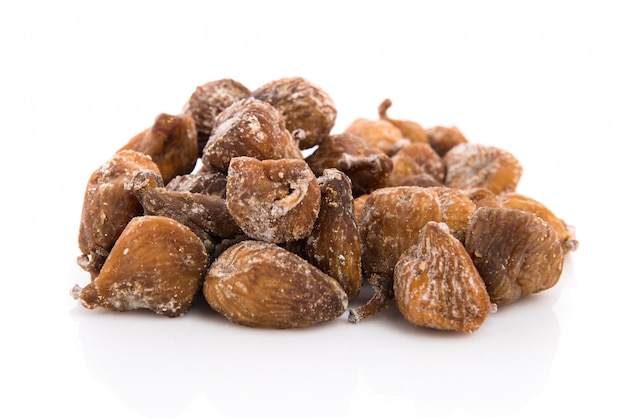
Health Benefits of Dried Figs:
- Bone Health: If you’re trying to keep your bones strong, figs are a great choice since they’re packed with calcium.
- Blood Sugar Regulation: Figs have a lower glycemic index than dates, making them a better option for anyone looking to regulate their blood sugar.
- Antioxidants: Figs contain antioxidants, which protect your body from damage caused by free radicals and help reduce the risk of chronic diseases.
So, whether you’re looking for energy, digestive help, or bone health, both dates and figs have got your back in different ways.
Key Differences Between Dates and Dried Figs
Now, let’s get to the nitty-gritty differences between dates and dried figs. While they may seem similar, they have unique qualities that set them apart.
Appearance
Dates are long and smooth, often with shiny, dark brown skin. Dried figs, however, are round or oval with bumpy, wrinkled skin that comes in colors ranging from light brown to deep purple.
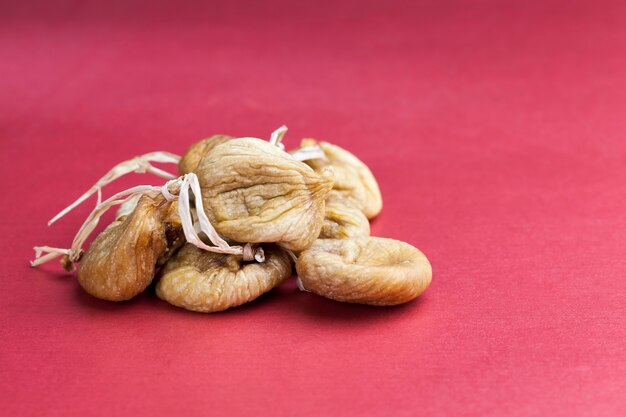
Taste
Dates are incredibly sweet, with a rich caramel-like flavor. Dried figs, on the other hand, have a slightly more earthy sweetness and a crunchier texture thanks to the seeds inside.
Culinary Uses
Dates are often used in sweet dishes, energy bars, smoothies, and desserts. Dried figs tend to be added to salads, baked goods, or enjoyed as a snack. The texture and flavor differences mean they’re suited to different types of recipes.
Storage
Both dates and figs last a long time when stored in an airtight container in a cool, dry place. They’re both super easy to keep on hand for whenever you need a sweet snack.
Here’s a quick checklist to help you tell the difference between the two:
Checklist for Telling Dates from Dried Figs:
- Dates: Long, smooth, dark brown, super sweet and caramel-like.
- Dried Figs: Round, wrinkled, slightly earthy with tiny seeds inside.
Are Dates Better Than Dried Figs?
At this point, you’re probably wondering, “Which one should I choose?” Honestly, it comes down to your preferences and what you’re looking for in a snack.
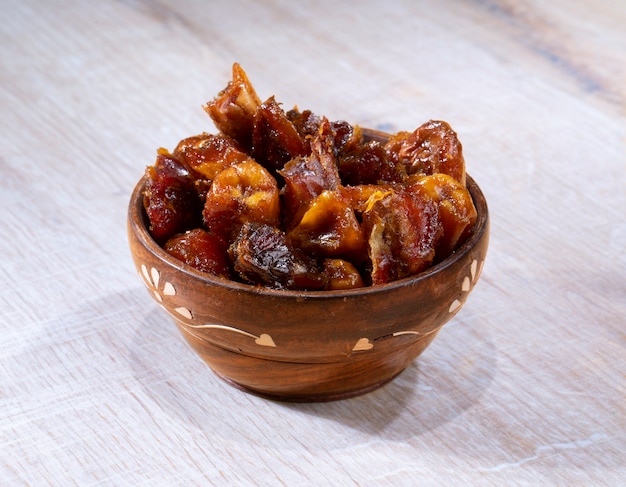
Why Dates Might Be the Better Option:
- They’re packed with sugar, so they give you a quick energy boost.
- They’re heart-healthy thanks to their potassium content.
- They’re versatile and easy to add to smoothies, energy bars, or desserts.
Why Dried Figs Might Be the Better Choice:
- They’re lower in calories, which is great if you’re keeping an eye on your calorie intake.
- Figs are packed with calcium, which supports bone health.
- They’re high in fiber, which helps with digestion and keeps you feeling fuller for longer.
If you’re looking for quick energy, dates might be your best bet. But if you want something that helps with digestion or supports your bones, dried figs are a great choice.
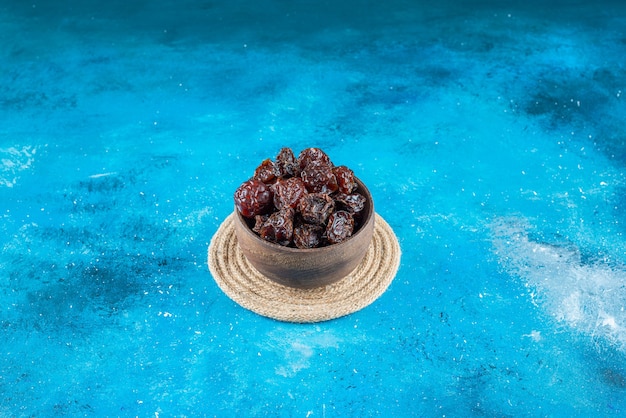
Trending Content: Why People Are Choosing Dates and Figs
These fruits aren’t just trending for their health benefits—they’re also super versatile. People are incorporating them into their diets more than ever. Whether it’s the UK or the USA, dates and figs have found their way into energy bars, smoothies, and even savory dishes. The best part? Both fruits are natural, delicious, and packed with nutrients.
Interview: A Nutritionist’s Take on Dates vs. Dried Figs
We spoke with Sarah Collins, a certified nutritionist based in London, to get her expert insights on the differences between dates and dried figs. Here’s what she had to say:
“When it comes to natural energy sources, dates are fantastic for an immediate pick-me-up, especially for athletes. On the other hand, dried figs shine in their ability to support digestion and bone health, making them a better option for long-term wellness.”
Sarah also emphasized the importance of balance:
“Both dates and figs are nutrient-rich, but because of their natural sugar content, they should be eaten in moderation as part of a healthy diet.”
This expert perspective gives a well-rounded view of how these two dried fruits can fit into different lifestyles and dietary needs.
Conclusion: Which One Should You Choose?
In the end, dates and dried figs each offer something special. Dates give you a quick energy boost and support heart health, while dried figs help with digestion, bone health, and more. Both fruits are packed with nutrition, so the choice really comes down to what you’re looking for in your diet. Either way, you can’t go wrong!
So, next time you’re at the store, grab a handful of dates or dried figs and snack away. You’ll be enjoying a natural, healthy treat in no time.
FAQs
Many people wonder if dates are a better option than dried figs when it comes to health. Both fruits have unique nutritional benefits, with dates providing a quick energy boost and high potassium levels. At the same time, dried figs offer more fiber and are a great source of calcium.
Dried figs and dates are both nutrient-dense, but they’re also high in natural sugars. The key to including them in a diet is portion control. When eaten in moderation, they can be a healthy snack for people looking to manage their weight, offering natural sweetness and fiber to satisfy cravings.
Yes! Both dates and dried figs are high in fiber, which promotes healthy digestion. Figs, in particular, are known for their ability to ease constipation. At the same time, dates also support digestive health by keeping things moving smoothly.
To keep dried figs and dates fresh, store them in an airtight container in a cool, dry place. They can also be refrigerated to extend their shelf life, but make sure they’re well-sealed to prevent them from drying out or absorbing odors from other foods.
Both dates and dried figs are excellent sources of natural sugar, making them great for a quick energy boost. Dates, with their higher sugar content, are often favored as a pre-workout snack. At the same time, figs provide a more balanced option for sustained energy throughout the day.


